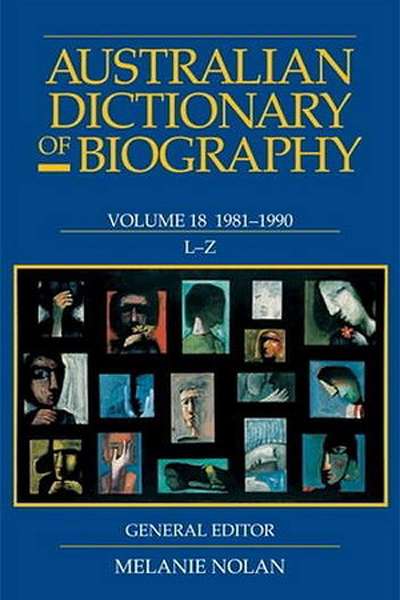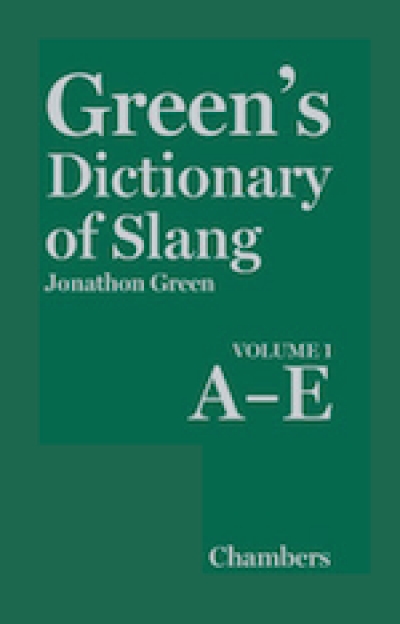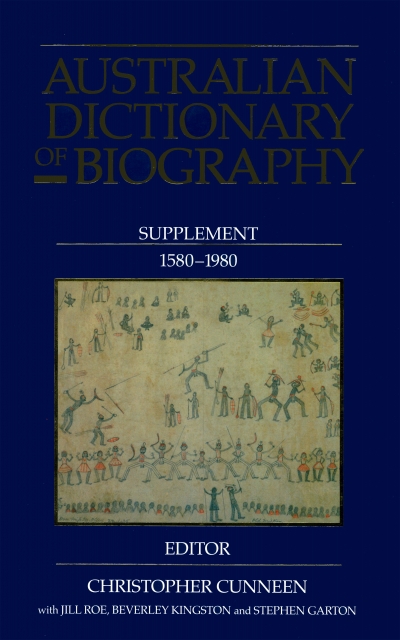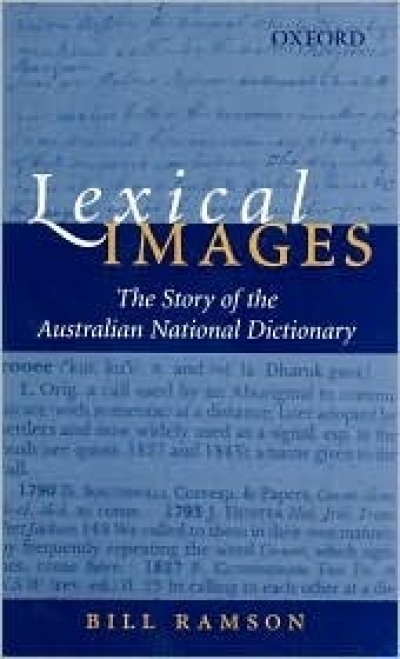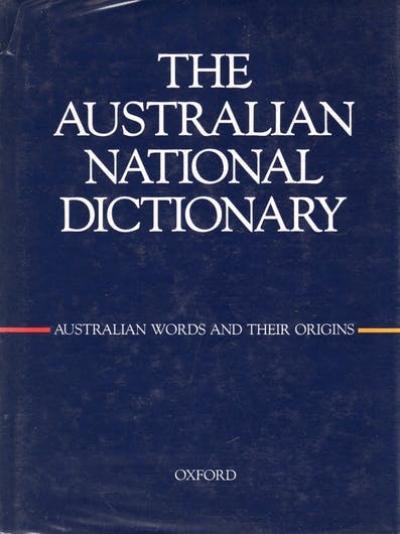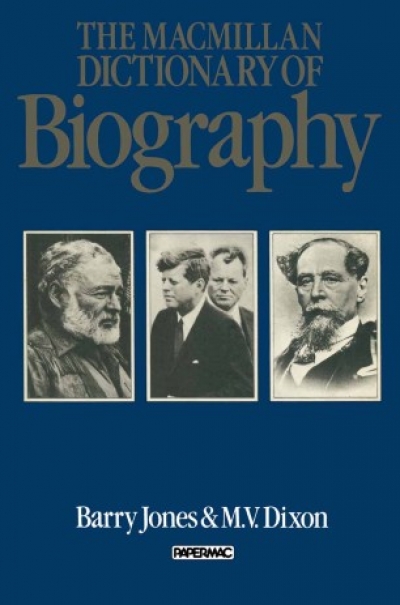Dictionary
Australian Dictionary of Biography, Volume 18: 1981–1990 (L–Z) edited by Melanie Nolan
by Brian Matthews •
Australian Dictionary of Biography: Supplement, 1580–1980 by Christopher Cunneen
by Paul Brunton •
Lexical Images: The story of the Australian national dictionary by Bill Ramson
by Nick Hudson •
The Australian National Dictionary: Australian words and their origins by W.S. Ramson
by Jack Hibberd •
The Macmillan Dictionary of Biography by Barry Jones and M.V. Dixon
by Kevin Childs •

